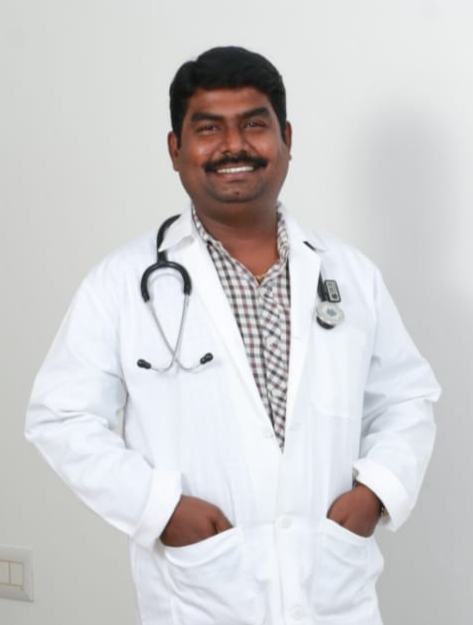Depression
Depression is a serious mental disorder that can affect a person’s thoughts, feelings, behavior, and sense of well-being. It’s characterized by a depressed mood or loss of interest in activities that lasts for at least two weeks and interferes with daily life.

Symptoms of depression
Feeling sad, anxious, irritable, empty and or hopeless.
Losing interest or pleasure in activities you once enjoyed.
Having trouble sleeping or waking up too early. Sleeping too little or too much.
Eating more or less than usual. A significant change in appetite (eating much less or more than usual) and/or weight (notable loss or gain unrelated to dieting).
Feeling tired, even after sleeping well. Decreased energy or increased tiredness or fatigue.
Having trouble concentrating or making decisions. Difficulty thinking or concentrating, forgetfulness, and/or difficulty making minor decisions.
Feeling guilty, worthless, or helpless.
Thinking about suicide or hurting own.
It is different from regular mood changes and feelings about everyday life.
Increase in purposeless physical activity (e.g., inability to sit still, pacing, handwringing) or slowed movements or speech that are severe enough to be observable by others.
Feeling worthless or excessively guilty.
Thoughts of death, suicidal ideation, or suicide attempts.
It is normal to experience moments of sadness or feeling “down in the dumps” or the blues as part of the human experience. However, a diagnosis of depression requires that the above symptoms occur for most of the day, nearly every day, for more than two weeks, along with a clear change in day-to-day functioning (e.g., in work/school performance, personal relationships, and hobbies). Fortunately, depression is very treatable.
Causes of depression
Stressful life events, such as bereavement, divorce, or trauma.
A family history of depression.
An imbalance of neurotransmitters in the brain.
Chronic medical conditions, such as diabetes or chronic pain.
Certain medications, such as some types of hormonal birth control, corticosteroids, and beta-blockers.
Vitamin D deficiency.
Risk Factors for Depression
It can affect anyone even those who seemingly have it all.
Several factors can play a role in depression.
Biochemical
Differences in certain chemicals in the brain (such as the neurotransmiters serotonin, dopamine and norepinephrine).
Genetic
It can run in families. For example, if one identical twin has depression, the other has a 70 percent chance of having the illness sometime in life.
Personality
People with low self-esteem, who are easily overwhelmed by stress, or who are generally pessimistic may be more likely to experience depression.
Environmental
Continuous exposure to violence, neglect, abuse or poverty can also pose risks for developing.
Depression Is Different From Sadness or Grief/Bereavement
The death of a loved one, loss of a job or the ending of a relationship are difficult experiences for a person to endure. It is normal for feelings of sadness or grief to develop in response to such situations. Those experiencing loss often might describe themselves as being “depressed.”
But being sad is not the same as having depression. The grieving process is natural and unique to each individual and shares some of the same features. Both grief and depression may involve intense sadness and withdrawal from usual activities.
They are also different in important ways
In grief, painful feelings come in waves, often intermixed with positive memories of the deceased. In major depression, mood and/or interest (pleasure) are decreased for most of two weeks.
In grief, self-esteem is usually maintained. In major depression, feelings of worthlessness and self-loathing are common.
In grief, thoughts of death may surface when thinking of or fantasizing about “joining” the deceased loved one. In major type, thoughts are focused on ending one’s life due to feeling worthless or undeserving of living or being unable to cope with the pain of depression.
Grief and depression can co-exist. When the both co-occur, the grief is more severe and lasts longer than grief without depression. Distinguishing between the both is important and can assist people in getting the help, support or treatment they need.
Treatment for Depression
It can be treated effectively, and there is no shame in seeking help.
It can be treated with a variety of options, including
Psychological treatments,
Medications, and other therapies.
Psychological treatments
These are often the first line of treatment, and can be used to teach new ways of thinking and coping. Psychological treatments can include talk therapy, cognitive behavioral therapy, and problem-solving therapy.
Medications
Antidepressants are often prescribed for moderate or severe depression. Monoamine oxidase inhibitors (MAOIs) are a type of antidepressant that work by affecting chemical messengers in the brain.
Other therapies
Relaxation techniques
These can include yoga, progressive muscle relaxation, and autogenic training.
Exercise
Physical activity can improve mood and energy levels.
Light therapy
Also known as phototherapy, this treatment is used for seasonal affective disorder (SAD).
Electro Convulsive Therapy (ECT)
This procedure is usually only considered for severe depression that hasn’t responded to other treatments.
Transcranial Magnetic Stimulation (TMS)
This treatment is also only considered when other treatments haven’t been effective.
The best treatment plan for depression depends on a person’s needs, preferences, and medical situation. It may take some trial and error to find the right treatment.
- Acid and Corrosive Poisoning
- Acne or Pimples
- Adrenal Glands
- Anaphylaxis
- Cardiopulmonary resuscitation
- Congenital Heart Disease
- Coronary Artery Diseases
- Diabetes
- ECG Analysis
- Emergency Medicine
- Fluids and Electrolytes
- Food and Nutrition
- Gastero-enterology
- Harmonal Disorders
- Heart Diseases
- Neurology
- Oncology
- ophthalmology
- Orthopedics
- Otolaryngology (ENT)
- Pituitary Gland
- Poisoning
- Psychiatry
- Respiratory Disorders
- Signs and Symptoms
- Skin Diseases
- Symptoms and Investigations
- Symptoms of Heart Diseases
- Thyroid Gland
- Urology
- Valvular Heart Diseases


Leave a Reply